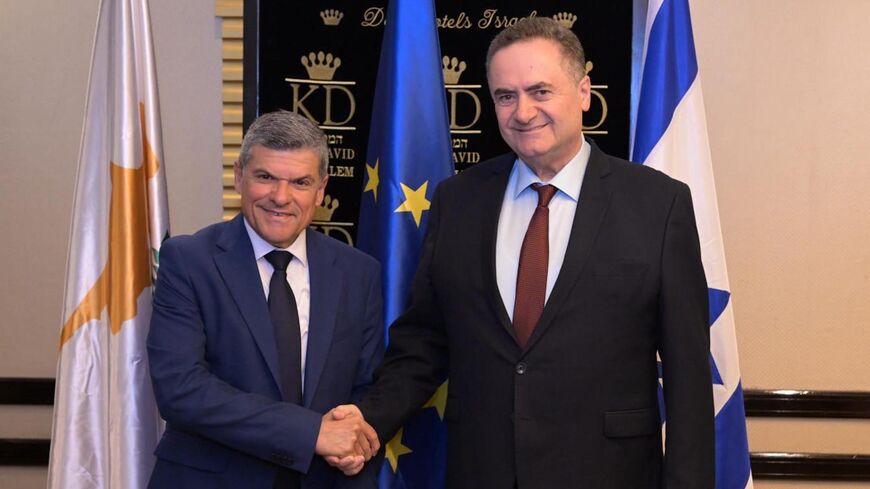Israel’s Energy Minister Israel Katz met with his visiting Cypriot counterpart, George Papanastasiou, in Jerusalem Thursday for a round of discussions on strengthening energy cooperation, particularly an initiative to connect the electricity grids of the two countries via an undersea cable.
A statement issued by Katz's office noted that the two ministers are laying groundwork for agreements on the undersea electricity cable project ahead of the COP28 climate summit set for November this year in Dubai. In July, the ministers agreed to create working groups that will advance joint electric, natural gas and hydrogen projects and connections. The statement read that Katz and Papanastasiou also discussed the cross-border Aphrodite-Yishai natural gas reservoir in the hope of reaching an agreement for the exploitation of the marine reservoir by the end of the year.
Katz stressed Israel's longstanding alliance with Cyprus. "The energy sector serves, especially these days, as an important anchor for strengthening the ties between the countries and realizing my vision of turning the State of Israel into an energy bridge between East and West, thus strengthening regional stability," Katz said. He added that Cyprus is an integral part in realizing that vision.
In March 2021, Israel, Greece and Cyprus signed a memorandum of understanding to build an undersea cable at the cost of $900 million. The European Union recognized the initiative as a Project of Common Interest, meaning it is willing to support it financially. The cable would link the power grids of the three countries, providing backup resources in times of emergency.
The cable would be the deepest ever such line at 2,700 meters and the longest at about 1,500 kilometers (900 miles) ever built. As Greece is linked to other European grids, the cable would also enable Israel to export electricity to Europe.
The Euro-Asia cable would be composed of three sections — Israel to Cyprus, Cyprus to Crete and from Crete to mainland Greece. The three signatories initially hoped for the cable to be constructed by 2024, a timetable that is no longer possible. Israel, Cyprus and Greece now hope for the construction to be realized by 2026. The Israeli and Cypriot energy ministers are now focusing on advancing the construction of the first section.
Papanastasiou's visit comes just a month after Cypriot President Nikos Christodoulides' Israel trip, during which meetings focused on economic, energy, tourism and security cooperation between the two countries. Building energy cooperation is also one of the main missions of Israel’s ambassador to Cyprus, Oren Anolik.
A source at the Israeli Energy Ministry told Al-Monitor that with the global energy crisis, the Euro-Asia project is more important than ever. Israel, said the source, is working to increase its production of green electricity as part of its commitment to reducing gas emissions and advancing clean energies. Energy cooperation with Greece and with Cyprus also greatly contribute to the trilateral strategic alliance and to the stability of the region.








